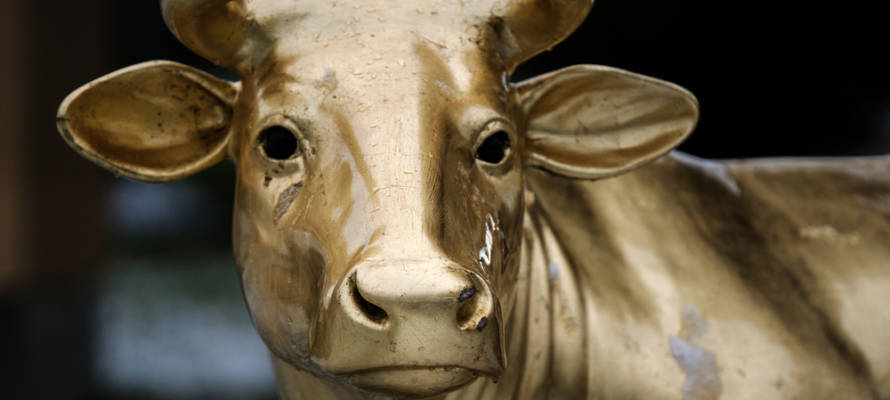I haven’t written for a while, so I put together a collection of thoughts I’ve been pondering for a while on why grounds for religious exemption for mandatory vaccination should be given deeper consideration.
Belief in Eschatology is a Prime Tenet of Faith
Prophecy, or ‘extended precognition’ by a more modern definition, is an inherent part of the Abrahamic Faiths. From Noah to Abraham, Moses to Mohammad, the idea of understanding the importance of events prior to their culmination is a core part of faith. The idea of Christ giving himself up for crucifixion is radically altered by the idea that he knew what would happen and willfully submitted himself to God’s plan.
John of Patmos is credited with authoring the Book of Revelations, a collection of visions regarding End Time events. Whatever his relation to the other Johns of the Bible, it is considered a historical fact that the book was written in Greek. It can be assumed from this that the author was literate in both Greek and Hebrew (Aramic), and considering his supposed exile to the island of Patmos by the Romans, likely understood Latin.
Why is this revelant? Prophets throughout the Bible who describe the End Times referenced events that would occur in a distant future. Their descriptions of these events arrived in the form of dreams, as in the Prophet Daniel, or visions, as referenced by John. If they were witnessing events thousands of years in the future there would have been severe language constraints on their understanding. In some ways, it would represent an insurmountable information gap, allowing only fragments of information gleaned through studying the actions of people, never truly comprehending their words.
So to first establish context, understand that at the time Revelation was written, languages like English hadn’t evolved. However, some English words that have Greek or Latin origins may have been intelligible to someone familiar with those languages. With this in mind, it is worth considering how John may have interpreted common modern words and phrases.
The First Horseman
“And I saw, and behold a white horse: and he that sat on him had a bow; and a crown was given unto him: and he went forth conquering, and to conquer.” -Revelation 6:2
The first horseman of the Apocalypse has several possible identifications. While some interpretations identify the rider of the White Horse as either the Messiah or the Antichrist, a more common conception is that this particular rider symbolizes a global plague. The end of Revelation concludes with the rediscovery of the Tree of Life in Revelation 2:22, whose leaves are for the healing of Nations, to end the plague itself. The word pandemic has clear Greek origins that could have been understood by John. The horseman is also given a crown, or in Latin, a corona. Even the word virus is also Latin in origin, meaning a poison or venom, so the current coronavirus pandemic appears to have linguistic similarities to John’s vision as described in Revelation 6.
The Mark of the Beast
John, from his perspective as an ancient Greek, wouldn’t have understood modern medicine. He also wouldn’t have understood the concept of a vaccine in response to a pandemic. However, he might have understood the relevance of words like ‘vaccinated’ given how frequently they are mentioned in modern life. And this importance may have led him to try to interpret their meaning.
The word vaccine derives from vacca originally, which is a Latin word for a milk cow, a common beast of burden in agricultural societies. One of the earliest demonstrated immunization technologies involved inoculation with cow pox to provide for an immune defense against small pox. The use of the word stuck, and even though modern vaccines have nothing to do with cows, its use persists.
John, hearing what he’d identified as important and relevant Latin words repeatedly frequently, might have interpreted the word vaccinated as vacca nota. Vacca, referring to a common domesticated beast of burden, and nota, from the Latin word meaning mark or seal. Therefore the concept of a beast mark or mark of the beast referenced by John may correlate to the word vaccinated. Words like mandatory and mandated, meaning commanded, also have Latin origins that would have been decipherable. So to John’s Greek/Latin hearing, mandatory vaccination may have sounded like commanded beast mark.
“And he causeth all, both small and great, rich and poor, free and bond, to receive a mark in their right hand, or in their foreheads: And that no man might buy or sell, save he that had the mark, or the name of the beast, or the number of his name.”
Revelation 13:16-17
In John’s vision, those who refuse the commanded beast mark were denied access to aspects of society, including the ability to engage in commerce. In the modern era, those who refuse mandatory vaccination can find themselves unable to work, enter retail establishments, even go to Church. Those who support the beast mark were expected to show their status in their hand (via a smartphone VaxPass app) and on their forehead (photo ID). The similarities to John’s vision seem somewhat stark. John’s vision also identifies the group pushing mandatory vaccination/commanded beast mark as essentially being on the wrong side of God’s plan, with their work ultimately being fruitless.
Given how negatively John’s vision presents those who support the mark of the beast, and how similar the circumstances of John’s vision are with these aspects of modern life, there should be strong grounds with which to seek a religious exemption from mandatory vaccination.

Leave a Reply